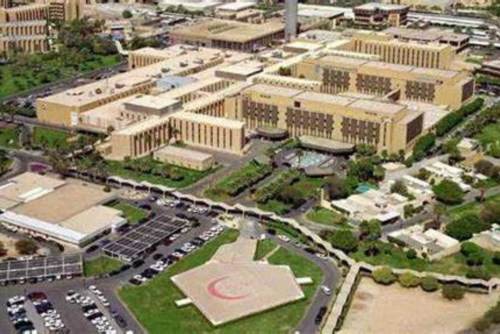Saudi Breakthrough: New Genetic Test by KFSHRC Cracks Undiagnosed Infections

This advancement comes after years of intensive research and collaboration between KFSHRC’s geneticists, microbiologists, and bioinformatics experts. The protocol leverages advanced next-generation sequencing (NGS) technology, which allows for the rapid sequencing of genetic material from pathogens. By analyzing this genetic data, the new test can identify a wide range of infectious agents, including bacteria, viruses, fungi, and parasites, even in cases where traditional tests have failed to pinpoint the cause.
Dr. Abdulaziz Al Fawaz, the lead researcher at KFSHRC, explained that this protocol marks a significant shift in how infectious diseases are diagnosed. "Traditional diagnostic methods often rely on culture techniques, which can be time-consuming and may not always yield results, particularly with fastidious or slow-growing pathogens. Our genetic test bypasses these limitations, providing a much faster and more accurate diagnosis," he said.
The implications of this breakthrough are vast. In clinical trials conducted at KFSHRC, the new genetic test was able to diagnose previously undetected infections in patients with complex medical histories. These patients, many of whom had undergone multiple rounds of testing and treatment without a clear diagnosis, were finally able to receive targeted therapies based on the results of the genetic test. For many, this meant a significant improvement in their prognosis and quality of life.
The success of this new protocol is particularly significant in Saudi Arabia, where the healthcare system has been increasingly focusing on precision medicine—tailoring medical treatment to the individual characteristics of each patient. By providing a faster and more accurate diagnosis, the genetic test not only improves patient outcomes but also helps to reduce the spread of infectious diseases by enabling more timely interventions.
KFSHRC’s achievement has also drawn international attention. Experts in the field of infectious diseases and genomics have lauded the protocol as a potential game-changer in global health. Dr. Richard Sykes, a leading microbiologist based in the UK, noted that this development could have far-reaching implications, particularly in regions where infectious diseases are endemic and resources for traditional diagnostics are limited.
Despite the excitement surrounding this innovation, the KFSHRC team is quick to caution that the test is not a panacea. While it represents a major step forward, there are still challenges to be addressed, including the need for further validation in diverse patient populations and the integration of the test into routine clinical practice. The hospital is currently working on expanding its clinical trials to include a broader demographic to ensure the test’s efficacy across different groups.
Moreover, there are ongoing efforts to refine the test to reduce costs and make it more accessible to healthcare providers beyond specialized research centers like KFSHRC. Dr. Al Fawaz emphasized the importance of collaboration in these efforts, stating that the ultimate goal is to make this life-saving technology available to patients around the world, particularly in low- and middle-income countries where access to advanced diagnostic tools is limited.
As the world continues to grapple with the challenges of emerging infectious diseases, the development of KFSHRC’s genetic testing protocol offers a glimpse into the future of diagnostics. This breakthrough not only enhances our ability to detect and treat complex infections but also underscores the critical role of innovative research in addressing some of the most pressing health challenges of our time.

Join the conversation